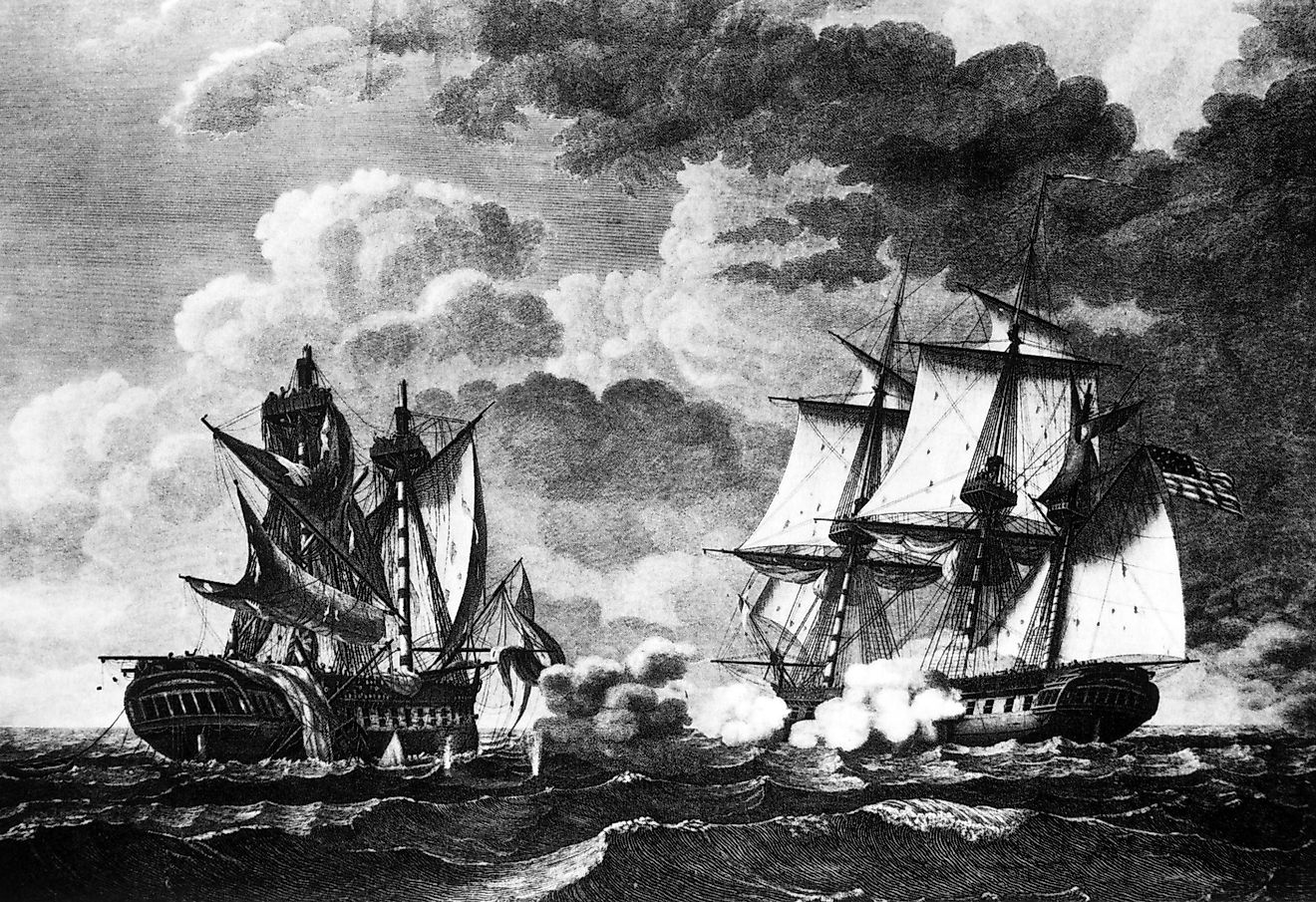
- The War of 1812 was between The United States and The United Kingdom, and it lasted for almost three years, from 1812 to 1815.
- The War of 1812 ended with the signing of the Treaty of Ghent.
- John C.Calhoun, an American political theorist, was the first who stated that the War of 1812 was the second American Revolution.
Lasting circa three years (from June 1812 to February 1815), both sides had important victories, and they eventually signed a peace treaty in 1814. Let us take a closer look at what happened during the war of 1812, and why it is sometimes called the second American Revolution.
The Second War Of American Independence
The War of 1812 was an important war between the forces of the United Kingdom and the United States, and it lasted from 1812 until 1815. The reason why this war is considered to be a second American Revolution is that some historians see this war as a second war for American independence. This war is considered a political disaster for the United States, as well as a great military loss. However, it was also a very important step towards the development of the independence of the United States.
The British military had an advantage, which was clear during the summer of 1814 when the United States suffered enormous naval blows in the Atlantic. Washington D.C. was in great danger, and The United States was on the edge of bankruptcy, but the disaster was evaded due to an unsuccessful attack by the Britsh on Fort McHenry. The British were unable to pass Fort McHenry and Baltimore Harbor, depleting all of their ammunition and canceling their attack.
The Treaty of Ghent
Eventually, the war ended with a peace treaty in 1814. This peace treaty was called the Treaty of Ghent, and it was officially signed on December 24. This treaty is very important because it recognized the American borders in North America between American and British territory for a second time. That is also the reason why this war is considered to be a second American Revolution. It is because that was the second time that the British recognized American borders from 1781.
Basically, the Treaty of Ghent restored the relations as they were before the war started in 1812. The “second American Revolution” statement unofficially belongs to John C.Calhoun, an American political theorist from South Carolina, who was also a vice president of the United States from 1852 to 1832. The ending of the war was a restoration of the national honor of the United States, as well as the beginning of the period of national unity in the country.
Different Perspective of The Aftermath
American memory is focused on the events at Baltimore Harbour, and other locations as a building block in the restoration and assertion of their national honor. This “second war of independence,” as it is also called, is a war where the British were humiliated, and America was victorious.
However, in British North America, the whole event is also seen as their victory, believing to be a successful defense of their territory against the United States. Many historians believe that the war ended in a draw since neither side wanted the war to continue due to a loss of the main cause of war and no large territories to be lost or reclaimed. United States, Britain, and Canada are considered to be the winners of the War of 1812.



 Users Today : 255
Users Today : 255 Total views : 666832
Total views : 666832